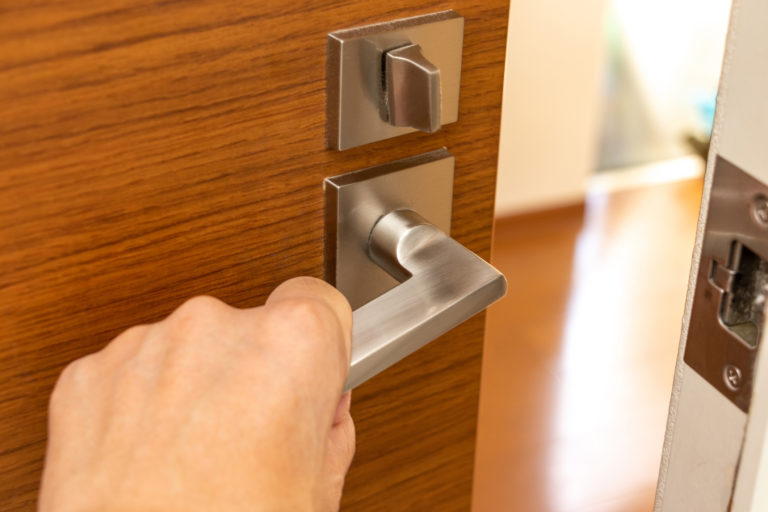Teaching home security to kids is an essential aspect of parenting, helping them appreciate the importance of protecting themselves and their loved ones. Security education boosts their awareness, risk assessment skills, and safety habits. Whether tailored for toddlers, children, or teenagers, these lessons strengthen family safety. Check out this thorough guide to home security for children.
Establish Core Safety Guidelines
Introduce Home Security Concepts
Explain the concept of home security in a way that’s easy for kids to understand. For little ones, say, “We lock doors to keep our family safe.” Older children can learn about broader aspects like protecting property, avoiding intruders, and recognizing risks.
Trusted Adults for Safety
Ensure your child knows which adults they can trust for help. Make a list of dependable people, like neighbors or close relatives, and emphasize caution when sharing personal details with strangers.
Teach Proper Door Security Steps
Locking Doors
Make sure your kids know how to lock and unlock doors from both sides. For younger children, explain why keeping doors locked during the day, even when at home, is an important safety habit.
Key Safety
For kids who use a key, stress the need to keep it secure and not to share it with anyone. Warn them about the risks of hiding keys in easy-to-guess spots like under doormats. Recommend leaving a spare with a trusted neighbor instead.
Using Smart Locks
If your home has digital locks, take time to explain their functionality to your kids. Emphasize the need to protect PIN codes or passwords and to keep them private, even from friends.
Discuss the Security of Windows at Home
Keep Windows Locked
Explain to children that unlocked windows can make it easier for intruders to access your home. Show them how to check that windows are secure and encourage them to do this daily, especially before sleeping or leaving.
Avoid Displaying Valuables
Help kids understand why valuables like toys or electronics shouldn’t be left near windows. Teach them how to create a safe, clutter-free area away from outside view.
Explain Proper Door Answering Etiquette
Don’t Open the Door Without Permission
Explain to younger kids that it’s important not to open the door unless an adult has given permission. Show them safe ways to check who is at the door, like using a peephole or camera, and remind them to always involve an adult.
Verify Visitors
For older children, establish a rule of caution with visitors. Teach them to verify the identity of anyone claiming to represent a company and to never let anyone in if they feel uncertain about their intentions.
Practice Using Alarms and Monitoring Systems
Understanding the Alarm System
Get your children involved in learning how the security system works. Show them how to arm and disarm it correctly and teach them the proper steps to take if the alarm is set off accidentally.
Emergency Contacts
Equip your children with a list of important contacts for emergencies. Include your number, the security company’s hotline, and the police to help them respond effectively if the alarm is triggered.
Talk About Staying Safe in the Presence of Strangers
Be Wary of Strangers
Help your children recognize that not all visitors or callers are safe. Teach them never to admit they’re home alone or give out details about when parents will return, ensuring they keep such information private.
What to Say on the Phone
Instruct your kids to avoid sharing personal information on the phone. Suggest they respond with neutral statements like, “My parents can’t come to the phone right now,” without providing any further details.
Teach Emergency Preparedness Through Practice
Fire Drills and Intruder Drills
Incorporate fire and intruder drills into your family routine. Walk your kids through escape plans, meeting locations, and contacting the right people for help. Repetition will help them act swiftly and without fear in real emergencies.
Calling 911
Teach your children how to call 911 and the importance of using it responsibly. Practice mock calls where they explain their full name, address, and the nature of the emergency to prepare them for real-life scenarios.
Talk About Maintaining Situational Awareness
Recognize Suspicious Behavior
Encourage your kids to stay alert and aware of their environment. Teach them to report anything unusual, like someone loitering or following them, to you or another trusted adult without hesitation.
Memorize Important Details
Help your children commit important information to memory, including their address, your contact number, and your full names. Explain how these details can be essential in an emergency.
Address the Importance of Digital Safety
Guarding Personal Information
Discuss with your kids why it’s essential to keep personal information private online. Teach them never to share their home address or phone number on social platforms or with strangers to safeguard their physical security.
Using Smart Devices Safely
If you have smart devices in your home, explain their purpose and functionality to your kids. Stress the importance of keeping login details safe and using these devices with care to maintain privacy and security.
Model Proper Behavior for Staying Secure
Model Safe Behavior
Teach safety through example by consistently locking doors, setting the security system, and being wary of strangers. Your consistent and mindful actions will teach your kids to do the same in their daily routines.
Involve Them in Home Security
Include your children in simple security tasks, like ensuring windows are secure or helping test alarms. Giving them a role instills a sense of responsibility and reinforces the importance of home safety.
Teaching kids the basics of home security is a valuable lifelong skill that helps them stay safe and vigilant. Starting with simple lessons and expanding their understanding as they grow creates a more secure environment for your family. Regular discussions, practice drills, and active involvement ensure they’re prepared for different scenarios, fostering their independence and giving you peace of mind.

